Is ERP right for you and your business?
Given today’s Internet of Things (IoT), along with buzz-worthy discussions regarding cloud-computing of all kinds, value considerations associated with ERP are coming to the fore yet again. Where in the past ERP systems were primarily valued as manufacturing applications today’s emergent necessity to trap, store, index, catalog, prioritize, manipulate and convert real-time commercial data into useful revenue-relevant information has become critical to nearly any enterprise regardless of market segment. Nevertheless, while this assertion may appear to be the rule rather than the exception these days, as a business owner or manager, one needs to understand what the individual is getting into first, rather than simply throwing a load of cash at some software that may or may not be relevant to the growth of a particular company.
Consequently, we thought we’d offer up some of the more obvious ‘you need this now’ red flags to help try to stay on the straight and narrow.
1) Does your business require too many discrete yet common software systems?
For example, if one’s financial infrastructure utilizes clusters of sometimes cranky GL/AP/AR/Payroll/Inventory/Shipping processes; chances are that the company is creating inefficiencies that would be better served by doing something different.
At first blush, this scenario may appear somewhat illogical, given the host of accounting verticals that have appeared over the last thirty years, nevertheless there are equal hosts of small companies who are facing growth trends that lie somewhere between ‘small and mid-sized’, and find themselves hog-tied by obsolescent systems that ‘look-like’ they are fully-integrated but in today’s reality simply aren’t up to snuff. These characteristics are primarily seen at the reporting, consolidation and reconciliation levels and are quite painful to deal with on a quarter-over-quarter basis, let alone dealing with the irksome nature of closing one’s year-end books. As a result, a smaller cloud-based ERP system may be the better way to go.
Recommended Reading: ERP Software in the Cloud - If cloud ERP is right for you, this guide is the ideal introduction.
2) You’re pushing on the plunger; but are you making butter?
Another alarming characteristic appears when small businesses experience labor inefficiencies that demand more physical labor in order to create previous or reduced levels of productivity. This is sometimes referred to as a ‘death spiral’ since any company’s labor component is usually the most expensive outlay and must be constantly managed and contained. Therefore, if one finds oneself dealing with this kind of business threat one had better start looking around for an ERP system sooner rather than later.
3) Dumb software is just that; dumb
The Internet of Things is changing everything, every day. Consequently today’s commercial transaction processes require constant information consolidation driven by input from customers, retailers, distributors, materials suppliers and affiliated business entities. As a result, if your enterprise systems are not able to ‘listen to the world in real-time’, it is likely that your enterprise is leaving money on the table. This capability is no longer just a desire but has become a critical business need that only the value of an all encompassing ERP system can provide.
Free white paper
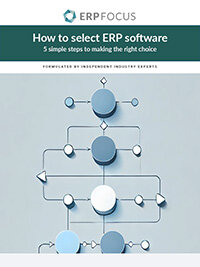
How to Select ERP
Learn to select your ERP in 5 easy steps by following our expert's advice
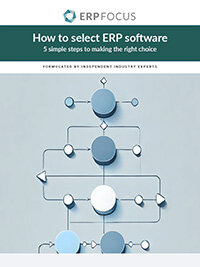
Featured white papers
-
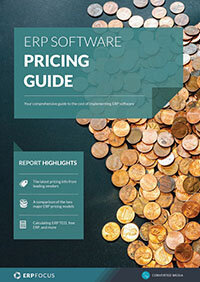
ERP Software Pricing Guide
Get the latest pricing information on over 80 popular ERP systems, and learn how to budget for your ERP project in our free guide
Download -
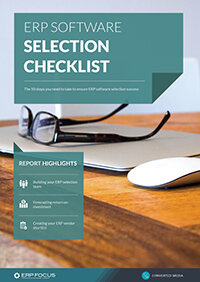
60-Step ERP Selection Checklist
Get the comprehensive checklist for your ERP selection project
Download -
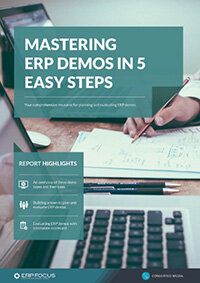
ERP Demo Guide & Scorecard
Master your ERP demo with 5 easy steps using our free guide (includes demo scorecard)
Download
Related articles
-

The best ERP systems for process manufacturing
Consider these ERP systems when selecting your next process manufacturing ERP
-

Secret KPI: Why Your ERP Implementation Team Matters More Than Software
Learn how Godlan ensures successful ERP implementation for manufacturers with proven strategies &...
-

5 ERP pricing definitions you need to understand
Have you mastered the ERP pricing lexicon yet? Getting to grips with these five definitions is a ...

